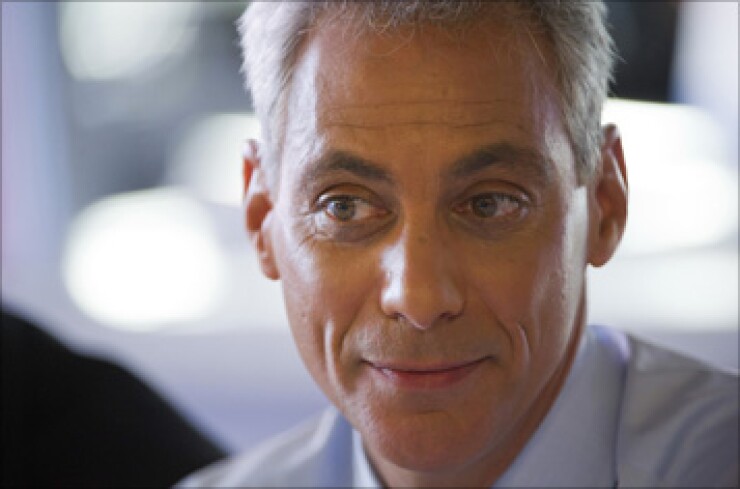
CHICAGO An Illinois General Assembly committee Wednesday advanced legislation to overhaul two of Chicago's four pension funds, setting the stage for a House vote.
The
"It is the intention of the General Assembly to address an immediate funding crisis that threatens the solvency and sustainability" of the city's Laborers' and Municipal Funds, reads a preamble to the amendment.
"The crisis confronting the city and its funds is so large and immediate that it cannot be addressed through increased funding alone, without modifying pension benefits. The consequences to the city of attempting to do so would be draconian," reads the preamble.
The city crafted the overhaul after discussions with many of the more than 30 unions representing impacted employees and most support it, according to the city. Several unions, however, have blasted the plan, so litigation is expected if it's adopted.
The legislation cleared the House Personnel and Pension Committee in a 6-4 vote and Madigan said he intended to bring it up for full floor vote on Wednesday. The House adjourned without taking action on it. The House session resumes Thursday at 10 A.M. CDT.
The bill was also heard in a Senate Executive Committee where it ran into Republican opposition. Senate Minority Leader Christine Radogno, R-Lemont said she wants the city to submit a long-term plan that addresses all of its pension woes. Democrats control the General Assembly and both the speaker and Senate president hail from Chicago. State Sen. Kwame Raoul, D-Chicago is the Senate sponsor.
The city is struggling with $19.5 billion of unfunded pension obligation which have taken a punishing toll on its bond ratings. The legislation would solve about half of the city's pension mess.
The plan addresses the city's Municipal Fund and Laborers' Fund. It does not deal with the city's police and fire plans or address a $600 million spike that looms next year in city contributions toward the police and fire plans. The spike is due to previous state legislation opposed by the city that was aimed at stabilizing public safety funds.
The plan would raise the city's current contributions for the two plans from a current level of $830 million by about $250 million to more than $1 billion in 2019. The rise would occur in gradual annual increments continuing through 2019 when the city would then shift to actuarially required contribution levels.
The city is hoping to strike a compromise that would phase in the ARC to ease the burden on the city's tax base and spare deep spending cuts.
The city said the fix would deal with about 53% of its pension problems and would strike the right balance between city and employee sacrifice to reach a 90% funded ratio in 40 years.
The proposal would shift the current 3% compounded cost-of-living adjustment to the lesser of a 3% simple adjustment or 50% of the consumer price index. No COLAs would occur in 2017, 2019, and 2025. Some employees now who face a minimum retirement age of 67 would see it lowered to 65. Employees' current 8.5% contribution would rise in increments by 2.5% through 2019 to 11%.
The city says the division of responsibility to stabilize the municipal and laborers funds would fall 70% on the city, 10% on employees, and 20% from reform savings. Half of the city's increases through 2020 would come from property taxes. The city would apply savings from previously adopted retiree healthcare subsidy cuts, budget savings, and other efficiencies to cover another 20%. The city would draw the other 30% from its more flush aviation and water enterprise funds making them responsible for covering their employees.
The municipal fund is 38% funded with $8.4 billion of unfunded obligations, and on a track to insolvency between 2023 and 2027. The smaller Laborers' Fund is 58% funded with $1 billion in unfunded obligations and on pace for insolvency between 2024 and 2031. The police fund carries $6.9 billion of unfunded obligations and the fire fund $3.1 billion.
Moody's warned in its last report downgrading the city's rating to Baa1 that the sheer size of its pension obligations threatens its "fiscal solvency." Chicago has the highest adjusted net pension liability among local governments rated by Moody's.





